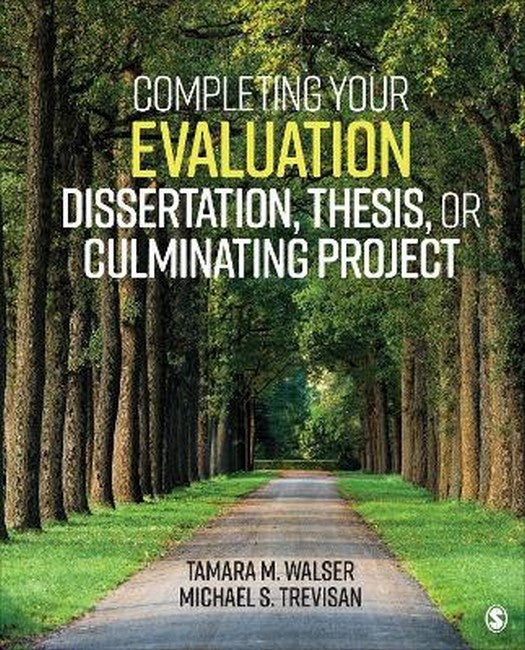Dr. Tamara Walser has worked in the evaluation field for more than 25 years. She is a professor in the department of Educational Leadership at the University of North Carolina Wilmington where she coordinates the Evaluation and Organizational Learning M.S. degree and Evaluation post-baccalaureate certificate program; she teaches courses in evaluation, inquiry methods, and academic writing. Dr. Walser previously worked as an evaluator in non-profit and for-profit organizations. She has served as Principal Investigator, Co-Principal Investigator, Project Manager, Lead Evaluator, and as an Advisory Group member on numerous grants and contracts focused on evaluation; and has presented research and training on evaluation nationally and internationally. She co-authored the book, Evaluability Assessment: Improving Evaluation Quality and Use, published in 2015. Dr. Walser obtained a Ph.D. in Research and Evaluation and a M.S. in Instructional Design and Development from Utah State University; she earned a B.A. in French from the University of North Carolina at Charlotte and began her professional career as a French teacher. Dr. Mike Trevisan is the dean of the College of Education and professor of educational psychology at Washington State University, where he has worked for 26 years. Dr. Trevisan has been principal investigator or co-principal investigator on many grants and contracts that require evaluation and has obtained more than $8 million in external funding. Dr. Trevisan is widely published in the field of evaluation and is often tapped as a consultant in the planning, development, and implementation of evaluations at both the local and national levels. He has provided evaluation workshops to K-12 school districts, state agencies, universities, nonprofit groups, the United Nations Population Fund, and professional meetings. His recent work focuses on the development of evaluation capacity internationally. To this end, he has provided evaluation workshops to students, faculty, and practitioners in several countries including India, Italy, and Thailand. In 2018, he received a Fulbright specialist award to Korea to help develop evaluation capacity among K-12 school counselors. Dr. Trevisan co-authored the book, Evaluability Assessment: Improving Evaluation Quality and Use, published in 2015.
Request Academic Copy
Please copy the ISBN for submitting review copy form
Description
Preface Acknowledgments About the Authors PART 1: Essentials for Your Journey Chapter 1 * The Evaluation Capstone Guiding Questions Chapter Overview What Is Evaluation? What Is an Evaluation Capstone? Chapter Summary Chapter 2 * Working Productively With Your Committee Guiding Questions Chapter Overview The Evaluation Capstone as a Process and a Product Nontechnical Skills in Evaluation Education and Practice Important Nontechnical Skills for Evaluation Capstones Choosing a Capstone Chair and Committee Members Communicating With Your Capstone Chair and Committee Chapter Summary PART 2: Navigating the Six Fundamentals of Evaluation Practice Chapter 3 * Quality: Addressing Professional Evaluation Standards and Guidelines Guiding Questions Chapter Overview What Are the Program Evaluation Standards? Culturally Responsive Evaluation Practice Evaluator Competencies Other Guidance for Evaluation Practice Meta-Evaluation of Your Evaluation Capstone Chapter Summary Chapter 4 * Stakeholders: Working With an Evaluation Client and Other Program Stakeholders Guiding Questions Chapter Overview Who Are Program Stakeholders? Developing a Stakeholder Engagement Plan and Log Elements of Effective Stakeholder Interactions Chapter Summary Chapter 5 * Understanding: Developing Understanding of a Program Guiding Questions Chapter Overview Why Does the Program Exist? What Is the Program, and How Is It Intended to Work? In What Context Does the Program Operate? Conducting a Review of the Literature for Your Evaluation Capstone Chapter Summary Chapter 6 * Values: Engaging Values Through Evaluation Purpose, Questions, and Criteria Guiding Questions Chapter Overview Engaging Values Evaluation Purpose Statement Evaluation Questions Evaluation Criteria Remaining Flexible Chapter Summary Chapter 7 * Approaches: Applying Evaluation Approaches Guiding Questions Chapter Overview Evaluation Theories, Models, and Approaches Taxonomies of Evaluation Approaches Choosing an Evaluation Approach The Relationship Between Evaluation Approach and Design Developing the Evaluation Design A Note About Validity and Trustworthiness for Evaluation Chapter Summary Chapter 8 * Use: Maximizing Evaluation Use Guiding Questions Chapter Overview Laying the Groundwork for Evaluation Use Additional Ideas About Increasing Evaluation Use Types of Evaluation Use Developing Evaluation Findings and Recommendations Developing an Evaluation Communication Plan Evaluation Capstone Reporting Formats Chapter Summary References Index
"The book provides a more practical approach/guide for conducting program evaluation." -- Augustine Hammond "A superbly written and important treatise that fills a wide gap." -- Katrin Anacker "This is an excellent guide for students undertaking an evaluation capstone project." -- Amy Donley I feel like I have co-teaching partners in the classroom using this text. This is a diverse resource to be used in a classroom setting or for individualized academic research advising for culminating projects." -- Frances Kayona "This text is a 'must-have' for the student who is conducting an evaluation dissertation study. It contains the essentials for developing a research rationale using the Program Evaluation Standards. It also combines the practical points of conducting a study with the academic requirements of completing a dissertation." -- John D. Tiller

